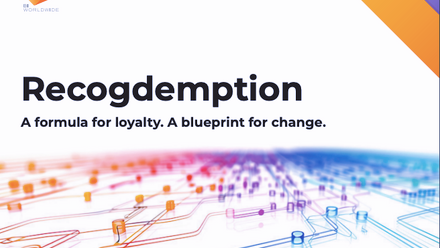How to use personalisation to improve employee retention

One of the biggest cultural changes we have seen, is that employees no longer see their employment as a “job for life”. In fact, they see it more as what they do right now on their journey. This attitude in itself puts added pressure on organisations that realise that they have to work even harder to hold onto their best talent.
It is common knowledge that it is far more cost effective to reduce talent churn than it is to attract new staff. In addition, the time taken to get new staff up to speed with the way your business operates can have an impact on the productivity of your organisation and its individual staff. Therefore, it makes sense to invest and innovate in keeping the talent you have – and personalisation is a great way to do this. Below are just a few of the ways in which you can create a more bespoke working experience for your team.
Know your employees
Most organisations have a diverse workforce. Not only when it comes to gender and ethnicity, but also age. This is one of the most important things a company can be aware of. Given this diverse workforce it naturally means that every employee will be looking for something different from their role.
Some will be looking for financial reward and others for lifestyle, wellbeing or retail benefits that they can enjoy on their own, with friends or their families. Although companies may be restricted with the financial rewards they can offer, there is now very little excuse for not providing a broad range of benefits to staff.
These will allow each member of staff to personalise what they get from the business, be it high street retail vouchers, cinema tickets to share with their families, gym membership, financial advice or discounts on their mobile phone bills.
Be flexible
Personalisation is as much about flexibility as it is about choice. Just take the latest announcement from PWC. They have launched a Flexible Talent Network that allows new recruits to list their skills and preferred working hours. It then plans to match recruits with relevant projects rather than specific roles. They are not the only company taking an innovative approach to flexibility. For a number of years Netflix has been offering its staff unlimited holidays, on the premise that the work always gets done.
Both these approaches give a very clear message to staff that they are trusted to carry out their responsibilities. They help enable employees to balance their working life and personal obligations, as long as they meet their goals and don’t abuse the system. This flexibility enables parents to spend more time with their families, carers to be there for their loved ones or simply enable someone to pursue a hobby or interest that would otherwise be shelved due to work commitments.
Working hours and holiday arrangements are easy to implement but companies can also be flexible on the types of contracts that they offer. Job shares, for example, can be a great way to cater to new parents who are seeking a return to the workplace. In addition, with the constant improvement and adoption of collaborative technology, there should also be more opportunities for individuals to work from home.
Make it personal
Keeping your team happy and engaged is not just about the rewards on offer, but also about the recognition you give them. Getting personal recognition from a boss or your peers can be as valuable and motivating as the financial and lifestyle benefits on offer – if not more so.
Getting to know your team, rewarding their performance and doing so publicly is not going to cost your business a great deal. A congratulatory email, a birthday cake, or a public acknowledgement of the individual can make each member of staff feel special and give them a sense of worth in that company.
Personalisation is cultural
There are a number of recognition schemes available that companies can adopt but this is an initiative that has to come from the top down. Let your staff know how much you appreciate them, thank them personally – show them you care.
As you have read, there are a number of ways to use personalisation to improve staff retention. Only some are financial, but they all are driven by the culture of your organisation. Modern businesses now put a big emphasis on culture, and this is only set to continue as the next generations mature through our workplaces.
This article was provided by Xexec.
Supplied by REBA Associate Member, Xexec
Xexec is the UK's leading Reward and Recognition and Employee Benefits provider.







